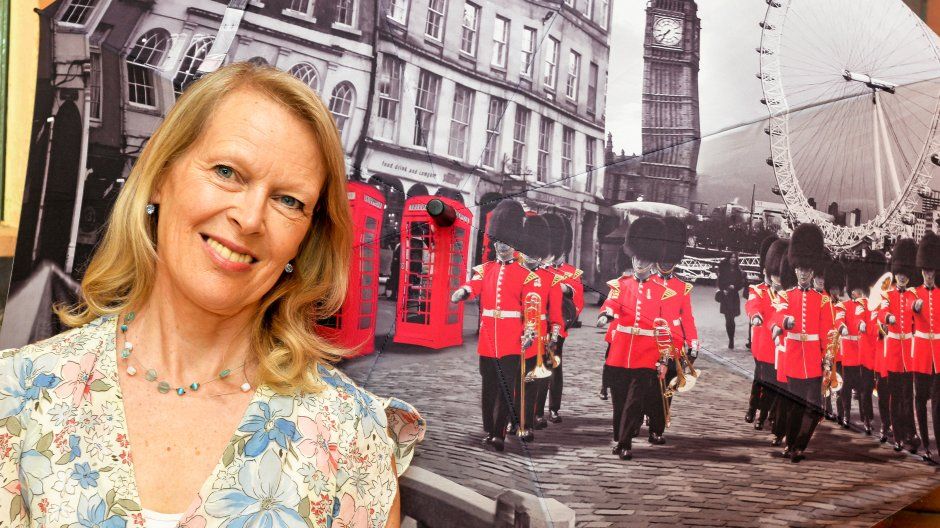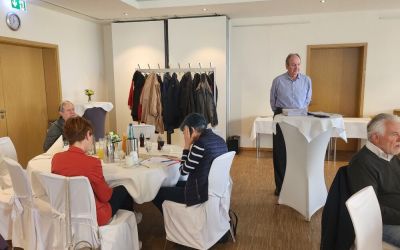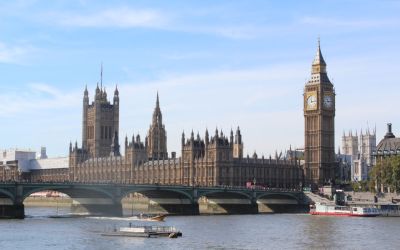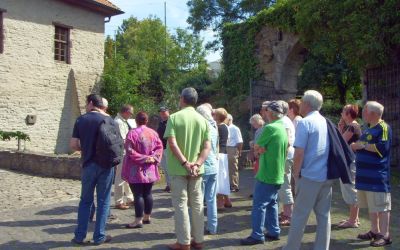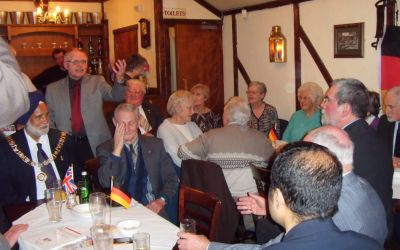Brexit: Why an English woman prefers to live in Witten
WAZ. When the British finally say “bye bye” to Europe on Friday (January 31st), a chef from the Witten VHS will hear it first hand. He lives in London.
When the Brexit supporters celebrate their exit from the European Union on Friday (January 31st), Martin Kiel and his European friends may have an alternative party – at which a few tears may flow. Kiel is a convinced European, in the middle of the Brexit country England. When he returns to the continent on summer or Easter vacation, the cook and curative teacher helps out at the adult education center in Witten.
“Most of the time I help in the kitchen and in the café,” says the native Remscheid, who moved to the island in 2007 because of love. He no longer has his friend, a British-Canadian. “Now I love my job,” says Kiel. He works at the “Garden School” in the Hackney district, a school for people from the “autistic spectrum”. There he takes care of “work-related learning”. Kiel: “I show the students how to work in a restaurant or how to serve in a café.”
90 percent of the school’s employees are Europeans, around 150 people. Like him, they would have felt that the climate has changed since the Brexit referendum over three years ago. In other words: it has become more uncomfortable for the Europeans. How does he fix that?
Well, as long as he doesn’t open his mouth, you don’t know where he’s from, says Martin Kiel. But if you hear that he is not an Englishman, it could even happen in the meantime that he is not served in some restaurants. The 53-year-old emphasizes: “We Londoners live in a bubble. London is Labor, not Tories. ”So a city that rejects Brexit.
Since he has work, a permanent residence permit and even an affordable apartment in South East London, the former Docklands, Kiel is not thinking of leaving the country despite the possible economic deterioration after Brexit. In any case, he wants to keep his German passport. “Who wants to be British?”
He doesn’t yet know what the chef’s culinary moods will be on this historic Friday. But he’s sure what he doesn’t want to eat: “Fish & Chips!”
Well, this English fast-food classic should also be known to Erich Bremm, the second chairman of the Barkin & Dagenham Witten Club, who has been on friendly terms with Witten’s twin town in the London borough of the same name for many years. The 78-year-old thinks Brexit is “nonsense”. The man from Witten does not believe that something will change in the longstanding personal relationships.
In October there is again a citizens’ trip from Witten to England, in the previous year a “whole bus full” from Barkin & Dagenham was there. What do you like about the UK? “The humor, people can laugh at themselves, and they are very helpful,” says Angela Bremm. “And the food is surprisingly good,” adds her husband. “Only the beer could be colder.”
Celia Unsworth, who comes from the south of England and has lived in Witten since 1989, is also firmly against Brexit. “It is very sad for the country that it is isolated, culturally, socially and economically,” she says. The 66-year-old Waldorf music teacher and therapist came to Germany for further training. She herself still has a lot of family on the island. Everyone is against Brexit. You would take on the current decision in a mixture of composure and resignation.
The Wittener by choice, who has dual citizenship, is happy to live on the Ruhr, in Bommern – especially now. “The last conservative governments in England have also dismantled the welfare state so severely,” says Celia Unsworth. On Wednesday she spoke to her cousin, a social worker, who had reported drastic cuts in recent years.
Unsworth, who finds out about her home twice a year and only got married last year at Steinhausen Castle, expects customs traffic delays on the ferry in the future. Brexit, she fears, is just the beginning of a lengthy negotiation process with the EU on trade agreements, border issues and other things.
The country is not taking a good path, fears the musician. “The Brexitiers look nostalgically at a glorious past, but their nationalism is no way to a fruitful future. “Humanity falls by the wayside.” She also thinks of the refugees against whom England wants to shield itself nowadays. A few days after the Holocaust Remembrance Day, Celia reminds Unsworth that it was a poor England that took in many Jewish children and families before the Second World War. She is worried about this human England.
WAZ report by Jürgen Augstein-Peschel
